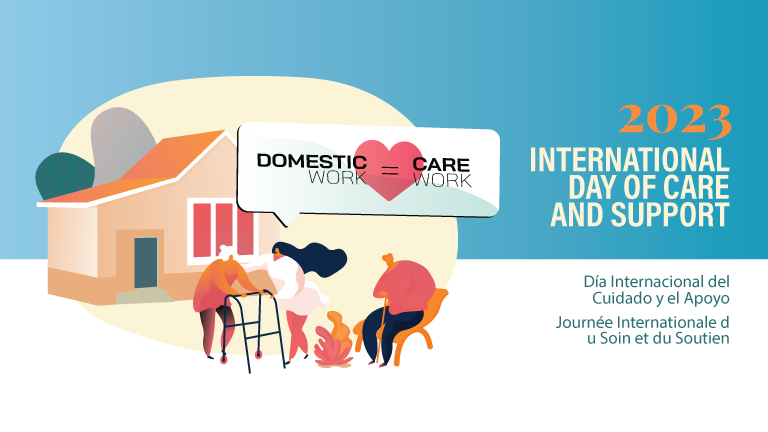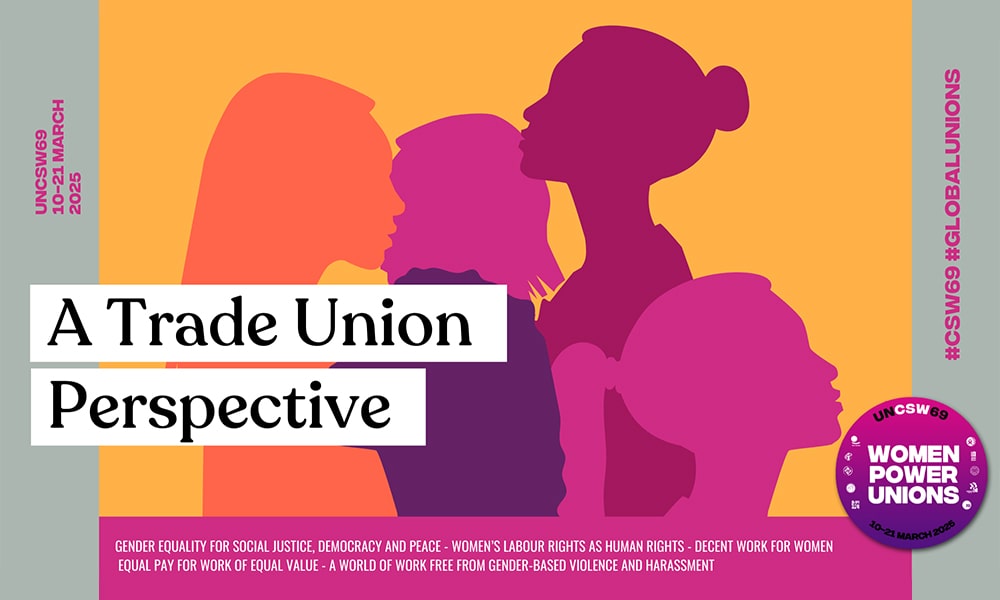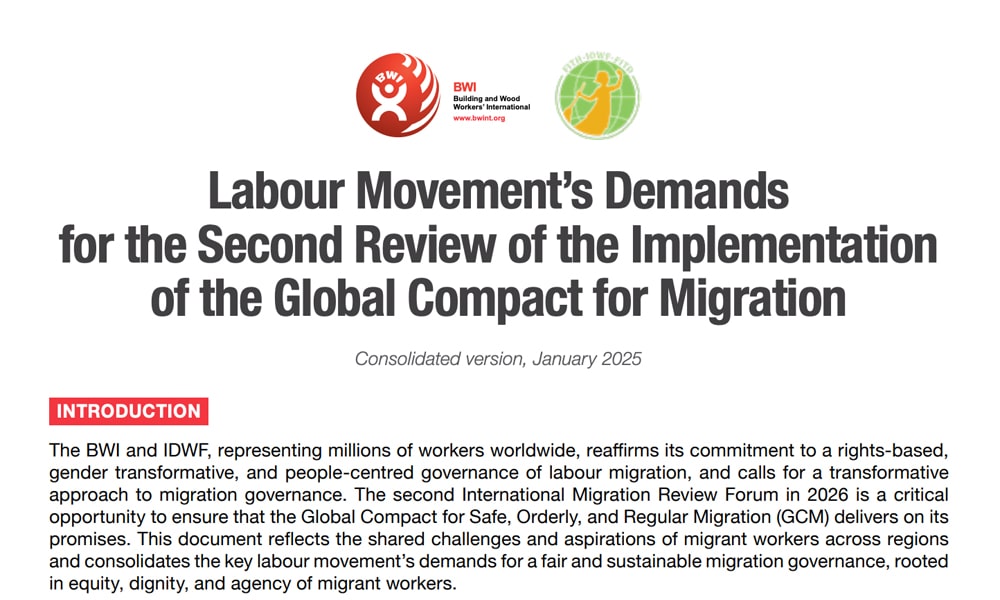
On the International Day of Care and Support, the IDWF reiterates in no uncertain terms: Domestic workers are care workers.
IDWF Statement for the International Day of Care and Support
This October 29th, on the International Day of Care and Support, the International Domestic Workers Federation wants to emphasize the central role of domestic workers in the care economy. Our global movement calls for recognizing that the caregiving work performed by domestic workers is the cornerstone of sustainable development and the construction of fair, inclusive, and resilient societies based on gender equity and decent work. It’s time to value and visibilize it!
Care is present in the lives of all human beings. Everyone has received care or provided care throughout their lives. And, in most cases, domestic workers have played the role of caregivers, allowing the sustainability of societies and economies. Their work is irreplaceable and cannot be replicated by technology.
Despite its vital role in the functioning of households, making all other jobs possible, paid domestic work is undervalued and invisible: it is the lowest paid feminized profession with the least access to social protection, with simultaneously, the highest rates of informality a and the most exposure to occupational risks, violence, and harassment. The Covid-19 pandemic and the growing adverse impacts of climate change show us that domestic workers are essential workers.
Domestic workers represent 25% of the care workforce worldwide (almost 250 million women), providing both direct and indirect care services: caring for children, the elderly, and people with disabilities, as well as cleaning, laundry, and cooking, among other tasks. They are, therefore, care workers and skilled workers. However, they are not always recognized or remunerated as such, due to the historic assignment of household work to women and the most vulnerable groups as natural caregivers.
We are facing an imminent care crisis. The ILO estimates that 2.3 billion people will need care services by 2030. Population growth, aging societies, new family structures, the role of women in the labor market, and deficiencies in social policies require urgent measures related to the care economy to address existing deficits and ensure the well-being of the population and decent work for care providers.
This crisis can only be mitigated through the implementation of transformative policies that ensure labor rights, human rights, gender equity, autonomy, and well-being for both care recipients and caregivers. Recognizing and valuing domestic workers as caregivers and as care recipients is essential to ensure decent work and social justice.
The global domestic workers’ movement demands the development of comprehensive care systems that consider care as a fundamental pillar of social protection and address the labor rights and care needs of our sector. It is about building sustainable, progressive, inclusive, and universal care systems based on the ILO’s “5R Framework for Decent Care Work”: Recognize, Reduce and Redistribute unpaid care work, as well as Reward and Represent paid care work by promoting decent work for domestic workers and guaranteeing their representation, social dialogue, and collective bargaining.
On the International Day of Care and Support, the IDWF calls on decision-makers and all actors in society to:
- Recognize domestic workers as part of the care workforce.
- Ensure decent work and fair remuneration for domestic workers as care workers (equal pay for equal work), in line with C189.
- Ensure access to quality public care services for domestic workers and their families.
- Ensure the right to social protection for domestic workers.
- Guarantee occupational health and safety for domestic workers.
- Protect migrant domestic workers, who make up a high percentage of care workers and are often excluded from labor protection, exploited, and victims of various abuses.
- Combat violence, discrimination, and stereotypes related to care work (gender, race, ethnicity, class, age, disability, and migratory status).
- Promote freedom of association, social dialogue, and collective bargaining for the sector.
- Encourage the valorization, training, professional development, and recognition of domestic workers’ skills.
- Ensure the representativeness of domestic workers in decision-making processes related to the care economy and include them in the public care agendas.
Nothing for us without us!
It’s time to move towards a caring society; a fair and solidarity-based society where care is a fundamental public good, and caregivers are duly valued. It’s time to recognize the central role of domestic workers in the care economy.
It’s time for care and support!
#CareForThoseWhoCareForYou #Care2023 #InternationalDayOfCare #DomesticWorkersAreCareWorkers #DomesticWorkIsCareWork #TimeToCareAndSupport
Download the IDWF statement here:
Call for IDWF Affiliates to amplify the message
Join us in our two-week-long campaign on October 29th to beam a spotlight on the importance of domestic workers in the care economy, as we celebrate the United Nations’ International Day of Care and Support – the first time this day is officially recognized by the UN.
Let’s stand united under the banner #CareForThoseWhoCareForYou and elevate our voices to bring deserved recognition to the phenomenal contributions of domestic workers as care workers!
Download our social media tool-kit to learn how:
Resources
Invest in Care: https://idwfed.org/invest-in-care/
https://idwfed.org/invest-in-care-decent-work-for-domestic-workers/
A Paradigm Shift for Care and Domestic Work: https://idwfed.org/a-paradigm-shift-for-care-and-domestic-work/






